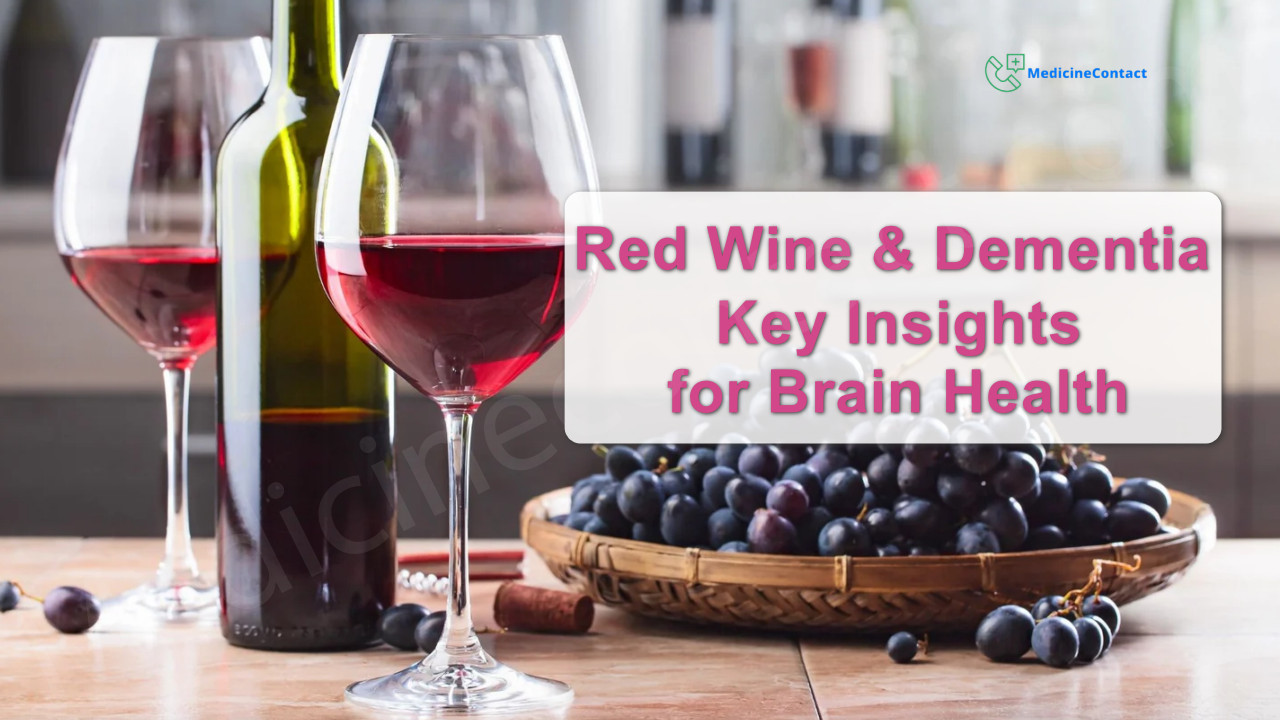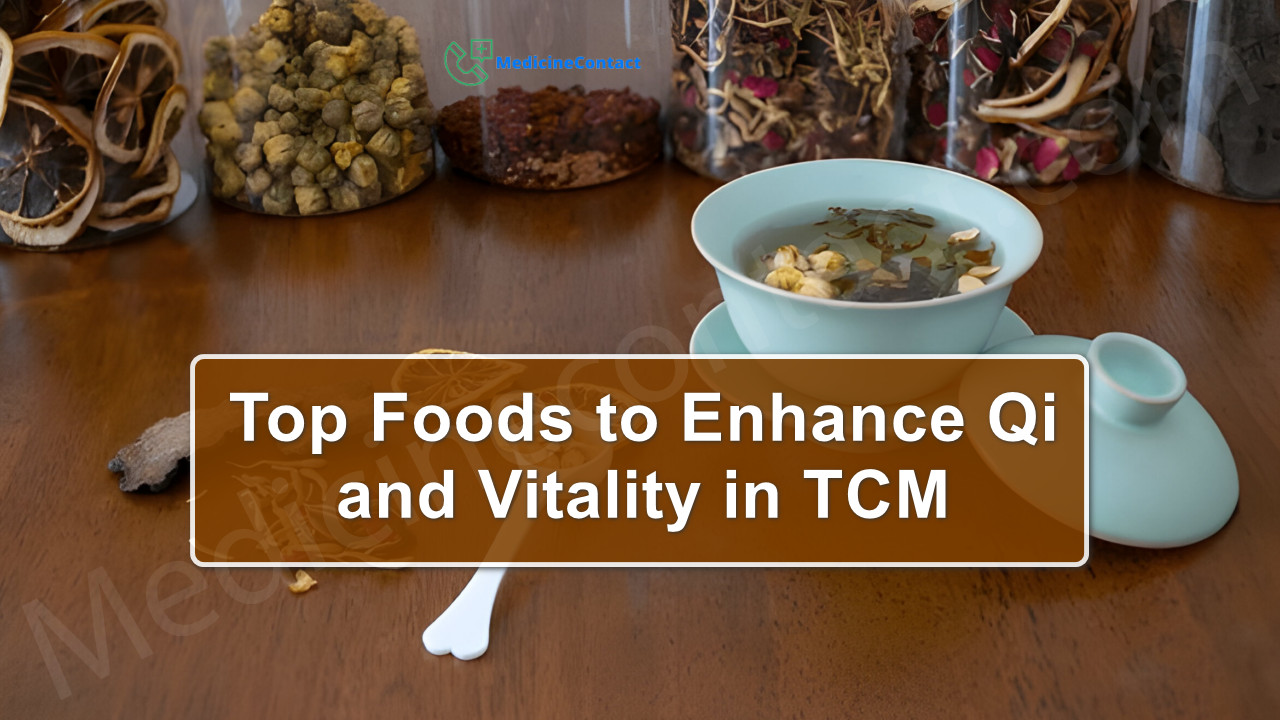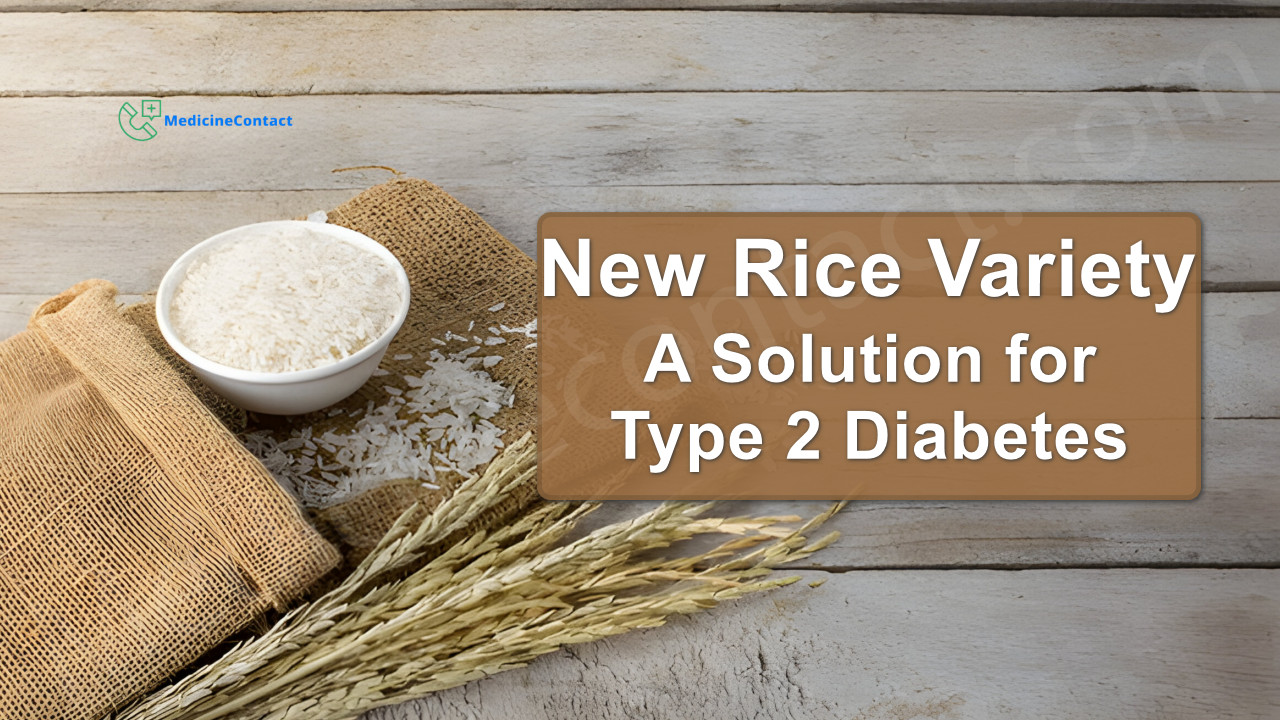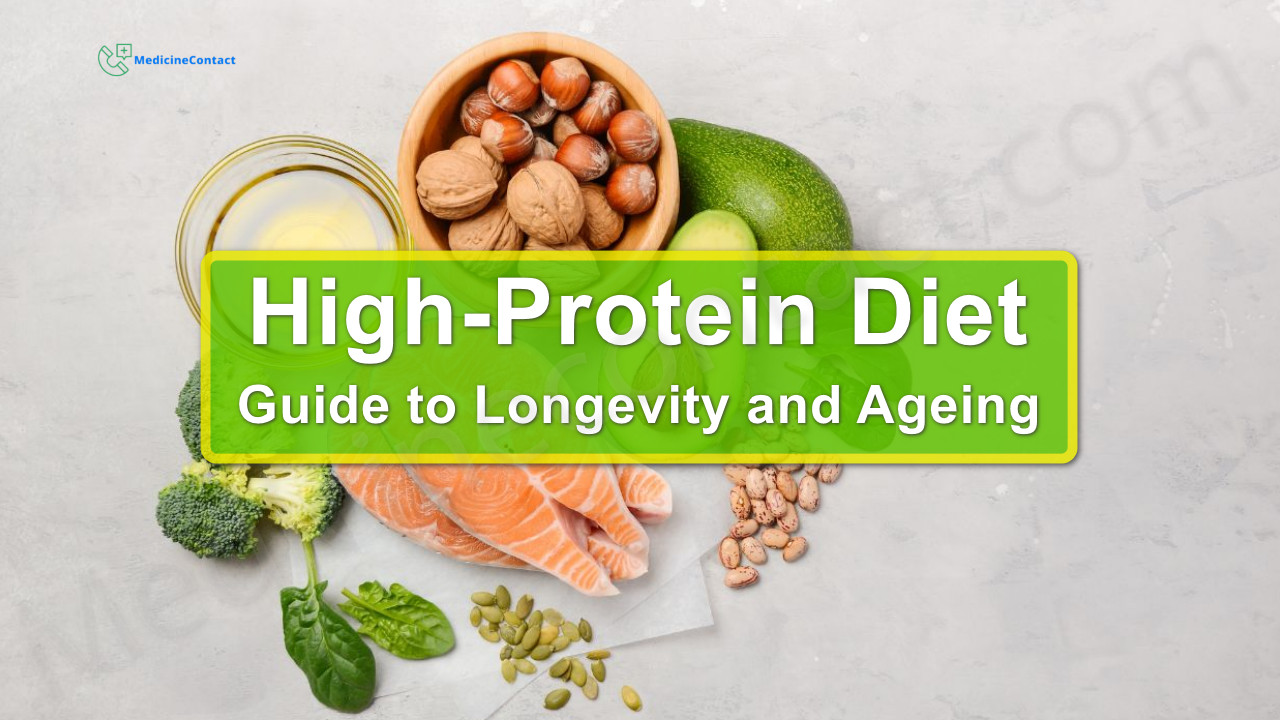
Introduction
Did you know that consuming flavonoid-rich foods and drinks, such as red wine, might lower the risk of dementia by approximately 28%? This intriguing statistic underscores the potential connection between dietary choices and cognitive health. Understanding this relationship is crucial for anyone interested in maintaining or improving brain health.
Key Points to be Discussed:
- Understanding Dementia: Definitions, types, and risk factors.
- The Role of Diet in Dementia Prevention: Dietary patterns and benefits of flavonoid-rich foods.
- Flavonoids: A Key Player in Brain Health: What they are and their sources.
- Red Wine as a Flavonoid Source: Potential health benefits and consumption guidelines.
- Research Insights on Red Wine and Dementia Risk Reduction: Summary of key studies.
- Practical Recommendations: Tips for safely incorporating red wine into your diet.
- Addressing Common Concerns: Health risks and special circumstances related to red wine consumption.
- Exploring Non-Alcoholic Alternatives: Other sources of flavonoids for a balanced diet.
Engage with these insights to make informed decisions about your dietary habits and their impact on cognitive well-being.
Understanding Dementia
Dementia is a term used to describe a group of progressive neurological disorders that affect memory, thinking, behavior, and the ability to perform everyday activities. The most common type of dementia is Alzheimer's disease, which accounts for approximately 60-80% of cases. Other types include:
- Vascular dementia: Often resulting from strokes or other issues that block or reduce blood flow to the brain.
- Lewy body dementia: Characterized by abnormal protein deposits called Lewy bodies in the brain.
- Frontotemporal dementia: Affects the frontal and temporal lobes of the brain, leading to changes in personality and language difficulties.
Prevalence of Dementia
Dementia is a growing public health concern, particularly in aging populations. In the UK, around one million people are currently living with dementia. Projections indicate this number could rise to 1.4 million by 2040. Globally, it is estimated that over 50 million people are affected by dementia, and this number is expected to triple by 2050 due to increasing life expectancy.
Risk Factors for Dementia
Understanding the risk factors associated with dementia can help in developing preventive strategies. Key risk factors include:
- Age: The likelihood of developing dementia increases significantly with age.
- Genetics: Family history and genetic predispositions play a crucial role.
- Cardiovascular health: Conditions like high blood pressure, high cholesterol, diabetes, and smoking are linked to an increased risk of vascular dementia.
- Lifestyle choices: Poor diet, lack of physical activity, and excessive alcohol consumption can contribute to cognitive decline.
- Mental health: Depression and chronic stress have been associated with higher risks.
Addressing these risk factors through lifestyle changes and preventive measures can potentially reduce the incidence of dementia.
The Role of Diet in Dementia Prevention
Diet plays a crucial role in reducing the risk of cognitive decline and dementia. One dietary pattern that has gained significant attention is the MIND diet (Mediterranean-DASH Diet Intervention for Neurodegenerative Delay). This diet combines elements from both the Mediterranean and DASH diets, emphasizing foods that support brain health.
Key Components of the MIND Diet
- Leafy green vegetables: Spinach, kale, and other greens are rich in vitamins and nutrients essential for brain function.
- Berries: Particularly strawberries and blueberries, these fruits are high in flavonoids, compounds known for their antioxidant properties.
- Nuts: A good source of healthy fats and antioxidants.
- Whole grains: Brown rice, quinoa, and whole wheat products provide fiber and nutrients that support overall health.
- Fish: Rich in omega-3 fatty acids which are beneficial for brain health.
- Olive oil: A primary fat source in the MIND diet known for its anti-inflammatory properties.
Flavonoid-Rich Foods
Including flavonoid-rich foods in your diet can have significant benefits on brain health. Flavonoids are natural compounds found in various plant-based foods and beverages:
- Berries: High in anthocyanins, these fruits help improve cognitive function.
- Tea: Both black and green teas are excellent sources of flavonoids.
- Dark chocolate: Contains flavonols which have been linked to improved memory and cognitive processing.
Studies suggest that individuals who consume higher amounts of flavonoid-rich foods have a lower risk of developing dementia. These compounds help reduce inflammation, protect neurons from oxidative stress, and improve blood flow to the brain.
Understanding how diet impacts cognitive health is vital. Choosing foods rich in nutrients and flavonoids offers a promising strategy for reducing the risk of dementia. For instance, it's important to maximize memory function with a nutrient-rich diet, which includes following guidelines such as those outlined in the MIND diet.
Flavonoids: A Key Player in Brain Health
Flavonoids are a diverse group of compounds found naturally in various plant-based foods and drinks. These compounds are known for their powerful antioxidant properties, which play a crucial role in protecting cells from damage and inflammation.
Natural Sources of Flavonoids
Flavonoids are abundant in a variety of everyday foods and drinks:
- Berries: Strawberries, blueberries, blackberries, and raspberries are particularly rich in flavonoids.
- Tea: Both black and green teas contain high levels of flavonoids.
- Dark Chocolate: Cocoa and dark chocolate are excellent sources.
- Citrus Fruits: Oranges, lemons, limes, and grapefruits offer significant amounts.
- Red Wine: Known for its flavonoid content, red wine has been the subject of numerous studies on its potential health benefits.
Antioxidant Properties and Brain Health
The antioxidant properties of flavonoids help reduce damage caused by free radicals—unstable molecules that can harm cells. This protective effect is especially important for brain health. Oxidative stress is a key factor in aging and is closely linked to diseases like dementia.
Research indicates that flavonoids may:
- Reduce Inflammation: Chronic inflammation is a risk factor for cognitive decline. Flavonoids can help lower inflammatory responses in the brain.
- Enhance Blood Flow: Better blood flow to the brain ensures it receives enough oxygen and nutrients, essential for maintaining thinking abilities.
- Promote Neurogenesis: Some studies suggest that flavonoids might support the growth of new brain cells, improving flexibility in the brain.
Understanding these mechanisms highlights why it's important to include foods rich in flavonoids in our diets to potentially protect against memory loss.
Red Wine as a Flavonoid Source
Red wine is known for its delicious taste and potential health benefits, mainly because it contains flavonoids. These are natural compounds found in many plant-based foods and drinks, and red wine is a great source of them.
Potential Health Benefits
Red wine contains flavonoids like quercetin, catechin, and resveratrol. These compounds are famous for their antioxidant abilities:
- Antioxidants: Flavonoids help neutralize free radicals, which can cause cellular damage and contribute to cognitive decline.
- Anti-Inflammatory Effects: Regular consumption of flavonoid-rich foods has been linked to reduced inflammation, a factor associated with many chronic diseases, including dementia.
- Improved Blood Flow: Red wine has been shown to enhance blood vessel function, which can improve circulation to the brain and support cognitive health.
Moderate vs. Excessive Consumption
It's important to know the difference between moderate and excessive drinking when talking about the benefits of red wine:
- Moderate Consumption: For most adults, this means up to one glass per day for women and up to two glasses per day for men. This level of intake can provide the potential benefits without significant risks.
- Example: Choosing a high-quality red wine like Pinot Noir or Cabernet Sauvignon can offer a higher concentration of beneficial flavonoids.
- Excessive Consumption: Regularly exceeding these limits can lead to adverse health effects such as liver damage, increased risk of certain cancers, and negative impacts on mental health.
Balancing enjoyment of red wine with moderation ensures that individuals can reap the benefits without encountering the risks associated with excessive alcohol consumption.
Key Takeaway
Including red wine as part of a balanced diet could be beneficial due to its flavonoid content. However, it is important to consume it in moderation to avoid health risks and maximize cognitive benefits.
Research Insights on Red Wine and Dementia Risk Reduction
Research into the relationship between red wine and dementia risk reduction has garnered significant interest. Several key studies provide valuable insights into this potential connection.
UK Biobank Study
One of the most notable studies exploring this link is the UK Biobank study. This large-scale research project analyzed data from over 500,000 participants aged 40-69, examining various lifestyle factors, including diet and alcohol consumption. Findings suggest that moderate consumption of red wine is associated with a reduced risk of cognitive decline. The antioxidants and flavonoids present in red wine are believed to contribute to this protective effect.
Queen's University Belfast Research
Further evidence comes from research conducted by Queen's University Belfast. This study involved dietary data from approximately 120,000 adults aged 40-70 and highlighted that consuming six additional servings of flavonoid-rich foods daily could lower dementia risk by about 28% according to this report. The study emphasized the benefits of including specific flavonoid-rich items such as berries, tea, and red wine in one's diet.
Key Findings
These studies collectively underscore several important points:
- Moderate Consumption Benefits: Moderate intake of red wine can be beneficial for brain health due to its high flavonoid content.
- Flavonoid-Rich Diet: A diet rich in flavonoids from various sources, not just red wine, plays a crucial role in reducing dementia risk.
- Population-Specific Benefits: Individuals with high blood pressure, depression, or a genetic predisposition to dementia may particularly benefit from increased flavonoid intake.
Practical Considerations
While these findings are promising, practical considerations remain critical:
- The Best Red Wine to Drink: Opting for high-quality red wines with higher flavonoid content is advisable.
- Do You Drink Red Wine Cold or Warm?: Typically, red wine should be served slightly below room temperature for optimal taste and health benefits.
- Can a Pregnant Woman Drink Red Wine?: It is generally advised that pregnant women avoid alcohol due to potential risks to fetal development.
These insights serve as a foundation for understanding how moderate red wine consumption might fit into a broader strategy for dementia prevention.
How to Safely and Enjoyably Add Red Wine to Your Diet
Choosing High-Quality Red Wines
When picking a red wine to include in your diet, it's important to focus on quality. High-quality red wines usually have more health benefits because they contain more flavonoids. Here are some tips to help you choose wisely:
- Go for Organic Wines: Organic wines often have fewer pesticides and additives, making them a purer choice.
- Look for Resveratrol-Rich Types: Wines like Pinot Noir are known for having high levels of resveratrol, a compound associated with various health benefits.
- Check Where It's From: Wines from places like Bordeaux and Tuscany are famous for their quality and production standards.
- Read Reviews: Check out wine reviews and ratings from reliable sources to find the best options.
How Much Red Wine Should You Drink?
The key to getting the benefits of drinking red wine is moderation. Drinking too much can cancel out the positive effects because of the risks linked to alcohol consumption. To get the most benefits while minimizing risks:
- Standard Serving Size: A standard serving of red wine is about 5 ounces (around 150 milliliters).
- Daily Intake Guidelines:
- Men: Up to two standard servings per day.
- Women: Up to one standard serving per day.
- Best Time to Drink: Some studies suggest that having red wine in the evening might make its calming effects stronger, possibly helping you relax before bed.
Benefits of Drinking Red Wine
Adding moderate amounts of red wine to your diet can bring several mental and overall health benefits:
- Antioxidant Properties: The flavonoids in red wine work as antioxidants, reducing oxidative stress in the brain.
- Anti-inflammatory Effects: Compounds like resveratrol help fight inflammation, which is linked to cognitive decline.
- Heart Health: Moderate red wine consumption has been associated with better heart health, which indirectly supports brain health.
Good Red Wines to Drink
For those interested in enjoying the benefits of drinking red wine, here are a few highly recommended options:
- Pinot Noir: High in resveratrol and known for its light, fruity flavor.
- Cabernet Sauvignon: Rich in flavonoids and offers a robust taste.
- Merlot: Smooth and easy-to-drink, making it a popular choice for many.
By following these guidelines, you can enjoy the benefits of drinking red wine responsibly.
Addressing Common Concerns about Red Wine Consumption in Relation to Health Risks and Special Circumstances
Alcohol Risks in the Aging Population
As individuals age, their bodies undergo various physiological changes that can affect how they metabolize alcohol. This makes older adults potentially more susceptible to the negative effects of alcohol consumption, including red wine. Key concerns include:
- Lower Tolerance Levels: Older adults may experience a decreased ability to process alcohol due to slower metabolism and reduced liver function, leading to increased sensitivity even with moderate consumption.
- Interaction with Medications: Many older adults take medications for chronic conditions such as hypertension, diabetes, or arthritis. Alcohol can interact with these medications, enhancing side effects or reducing their effectiveness.
- Increased Risk of Falls and Injuries: Alcohol impairs coordination and balance, increasing the risk of falls and related injuries, which can be particularly serious in older populations.
Can I Drink Red Wine While Pregnant?
Pregnancy brings its own set of considerations when it comes to alcohol consumption. The consensus among healthcare professionals is clear:
- No Safe Amount: There is no established safe level of alcohol consumption during pregnancy. Even small amounts can pose risks to the developing fetus.
- Potential Risks: Drinking red wine while pregnant can lead to fetal alcohol spectrum disorders (FASDs), which encompass a range of physical, behavioral, and learning problems in children.
For those who enjoy red wine but are pregnant or planning a pregnancy, non-alcoholic alternatives rich in flavonoids—such as grape juice or non-alcoholic red wines—can offer similar benefits without the associated risks.
Individual Variations and Pre-existing Conditions
Individual health conditions play a significant role in determining whether moderate red wine consumption is advisable:
- Cardiovascular Issues: Individuals with certain heart conditions may benefit from the antioxidants in red wine but need to weigh this against any potential adverse effects on their condition.
- Liver Disease: Those with liver-related health issues should avoid alcohol entirely due to the additional strain it places on liver function.
Consulting with a healthcare provider is crucial for personalized advice based on individual health profiles and circumstances.
Ensuring that you address these concerns can help you make informed decisions about incorporating red wine into your diet safely.
Exploring Non-Alcoholic Alternatives for Flavonoid Intake: A Balanced Approach to Brain Health Support Through Diverse Dietary Choices
If you're looking for non-alcoholic options to support brain health, there are many flavonoid-rich foods you can include in your diet. These alternatives offer the same cognitive benefits without the risks of drinking alcohol.
Tea
- Green Tea: Known for its high flavonoid content, green tea offers antioxidant properties that can support brain health.
- Black Tea: Another excellent source of flavonoids, black tea can be enjoyed hot or iced.
Fruits and Vegetables
- Berries: Strawberries, blueberries, and raspberries are packed with flavonoids and are easy to incorporate into daily meals.
- Citrus Fruits: Oranges, grapefruits, and lemons not only provide vitamin C but also contain significant amounts of flavonoids.
- Leafy Greens: Spinach, kale, and other leafy greens are rich in various nutrients, including flavonoids.
Other Sources
- Dark Chocolate: Opting for dark chocolate with a high cocoa content provides a tasty way to increase flavonoid intake.
- Legumes: Beans and lentils are not only high in protein but also contain beneficial compounds like flavonoids.
Adding these foods to your diet can help improve brain health. It's important to combine these choices with other healthy habits like regular exercise and mental activities for overall cognitive well-being.
Conclusion: Embracing a Holistic Approach to Cognitive Well-Being Through Mindful Dietary Choices
Balancing the enjoyment of red wine with other lifestyle choices can significantly support cognitive health. Moderate consumption of red wine offers flavonoid benefits, but integrating additional strategies ensures a comprehensive approach to brain well-being.
Key Lifestyle Factors for Cognitive Health
- Physical Activity: Engaging in regular exercise not only supports overall health but also enhances cognitive function.
- Mental Stimulation: Activities like puzzles, reading, and learning new skills can keep the brain active and sharp.
- Social Engagement: Maintaining strong social connections and participating in community activities can reduce the risk of cognitive decline.
Diverse Dietary Choices
Incorporating a variety of flavonoid-rich foods such as berries, tea, and dark chocolate provides essential nutrients without relying solely on alcoholic beverages.
A holistic approach combining these elements fosters better cognitive health. For more insights into how dietary choices impact dementia risk, visit Healthy Recipes by Medicinecontact.com . These recipes can help you incorporate a variety of nutrient-rich foods that support brain health and potentially reduce the risk of dementia. By integrating flavorful and healthy options into your meals, you can enjoy delicious food while promoting cognitive well-being.
FAQs (Frequently Asked Questions)
What is the relationship between red wine and dementia?
Research suggests that moderate consumption of red wine, which is rich in flavonoids, may have potential benefits for cognitive health and could reduce the risk of dementia. Flavonoids are antioxidants that can positively impact brain health.
Can I drink red wine while pregnant?
It is generally advised to avoid alcohol during pregnancy, including red wine, due to potential risks to fetal development. Always consult with a healthcare professional for personalized guidance.
What dietary patterns can help prevent dementia?
Dietary patterns such as the MIND diet have been linked to a reduced risk of cognitive decline. Incorporating flavonoid-rich foods like berries, tea, and dark chocolate can also support brain health.
How do flavonoids benefit brain health?
Flavonoids are natural compounds found in various foods that possess antioxidant properties. They may help protect brain cells from damage and inflammation, potentially contributing to improved cognitive function.
What are the recommended serving sizes for red wine?
To maximize the potential health benefits of red wine while minimizing risks, it is recommended to consume it in moderation—typically defined as one glass per day for women and up to two glasses per day for men.
Are there non-alcoholic alternatives to obtain flavonoids?
Yes, there are several non-alcoholic sources of flavonoids that can be included in a balanced diet. Options include tea, fruits like berries and apples, and vegetables such as onions and kale.
Disclaimer: This article is for informational purposes only and does not constitute medical advice. Always consult with a healthcare professional before starting any new treatment regimen.




